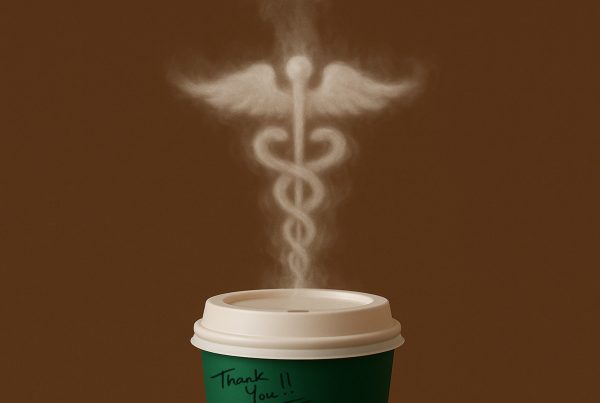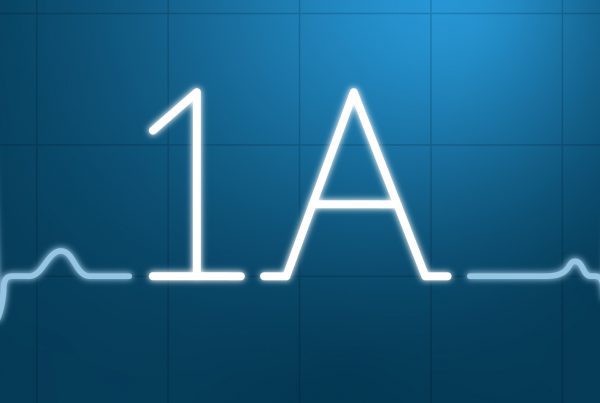The Big Story: Gun violence, reform and the voice of healthcare
For clinicians and healthcare leaders, there is a clear mandate from the public to be part of the conversation in addressing the public health crisis of gun violence.
Is this the moment?
3-minute read
Shootings in a school. Shootings in a bank. Shootings in a mall. Children, mothers, fathers – people dead. Chaotic. Horrifying. Gun violence persists in the headlines, top of the fold.
You may wonder: Is this the moment? Is this when we speak out, as healthcare leaders, and as an organization?
You may ask:
- Should we lend this issue – among so many competing issues – the weight of our carefully curated reputation?
- Is speaking out now, on this issue, worthy of risking our plans, worthy of our Mission?
You may consider:
- Do our stakeholders really want to hear from us on this sensitive topic?
- Might we irritate an important group?
- Are we shoving our way into a conversation uncredentialed and uninvited merely to appear relevant?
All smart questions to be applied to a host of troubling cultural issues begging for healthcare’s voice. These are practical calculations, too, for healthcare leaders living in a tenuous moment when every resource is precious.
After all, you can’t boil the ocean…but you can’t blithely sail over it, either.
Getting Answers
Last week, instead of wondering about some of these questions, we sought answers.
Jarrard Inc. polled 500 Tennesseans about the importance of hearing from healthcare leaders on the issue of gun violence, as well as their thoughts on the last-minute reforms introduced by Governor Bill Lee.
Gun violence remains, tragically, a timely topic in Tennessee as the state continues to reel from the murder of six people, including three children, in The Covenant School shooting on March 27.
So, what did we hear about gun violence from those who live in one of the reddest of red states, where literally every other home has a gun?
- Gun violence is a great concern. Two-thirds of Tennesseans said they worry that they “or someone they love” will be a victim of gun violence, including 19 percent who said they worry about it every day. How serious is it? On a scale of 1 to 5, with 5 being “a very serious problem,” 56 percent ranked gun violence a 4 or 5.
- It’s a public health crisis. Nearly six in 10 agreed that gun violence is “a public health crisis.”
- Healthcare has the most trusted voice. Physicians, nurses and hospital leaders have the most trusted point view on the issue, according to 70 percent or more. Police and teachers were close behind.
- Healthcare’s voices should be heard. A staggering 82 percent said it’s important that hospital leaders, physicians and nurses be active voices in the public conversation about gun violence.
- Reforms? The majority of those surveyed – including Republicans, Democrats, independents and gun owners – broadly favor:
- Safe Storage Laws to keep guns from falling into the wrong hands by requiring guns be locked up tight and reported if they go missing.
- Extreme Risk Laws to allow authorities to temporarily remove guns from people who pose a risk to themselves or others.
- Closing background check loopholes, requiring sales of guns to include a 72-hour background check.
We invite you to go deeper into our survey here.
Lessons for everyone, everywhere, all at once
Chances are you, dear reader, may not live in Tennessee. Nashville’s issues may feel far removed from California or Connecticut. While gun violence is pervasive and worthy of your attention, you may be dealing with additional crisis-level issues closer to home.
Wherever you are, there are lessons here for every healthcare leader who cares.
Be a farmer of common ground. The survey unearthed something rarely found in coverage of politically charged issues: the possibility of common ground.
Could it be that cable television news, breathless Twitter threads and the loudest voices in the room feed us inaccurate, if not poisonous, images of our community and the very people we lead and serve? We share your shock.
In our centrifuge society that pushes people into corners and tribes, the survey reveals shared worries and broad agreement across parties, geographies and income on how we might begin to tackle the deep-rooted problem of gun violence. Together.
Grounded in your Mission and leveraging your trusted voice, you and your organization may best serve the moment as a facilitator – a convenor – for framing and addressing the hottest of issues that affect the health and wellness of the communities you serve.
It may be that only healthcare can nurture that soil where unexpected things can grow.
You are a trusted voice on big issues. You know this, but it’s easily forgotten as our day-to-day world can shrink to the size of a cell on a microscope or a spreadsheet.
Pull back the lens. In an age of broken trust, providers of care – hospital leaders, healers, wearers of white coats – continue to have an immense store of goodwill on issues broadly related to healthcare. This is not to say providers have an endless supply of trust or endless resources to spend using it. But deployed well, the trust and resources that do exist can be powerful.
How, you ask? To help get started on this issue, download a set of free resources on gun violence created by Jarrard Inc. for health systems and provider organizations whose leaders are working to clearly articulate their position, leverage their trusted voice and ignite action on gun violence.
It’s right to ask the hard questions about when to speak and act on the challenging questions of the day. It’s an investment strategy: How do you best invest your time, attention and money in a manner that reflects your organization, your Mission and your priorities?
You can’t do everything, but you must do some things. You must invest. You must speak out.
One more thing, for those in Tennessee:
On Tuesday, April 18, Voices for a Safer Tennessee is coordinating a powerful expression of solidarity with the Covenant School victims and others affected by gun violence and that will also demonstrate support for gun violence reforms. Wearing red, participants will create a human chain stretching from Monroe Carell Jr. Children’s Hospital at Vanderbilt – where victims of the March 27 shooting were taken – to the Tennessee State Capitol.
We’ll be there alongside Safer TN, which is a nonpartisan statewide coalition dedicated to prioritizing gun safety and advocating for common sense gun laws to make communities across Tennessee safer for all of us. Learn more, join us and register for Linking Arms for Change here.




